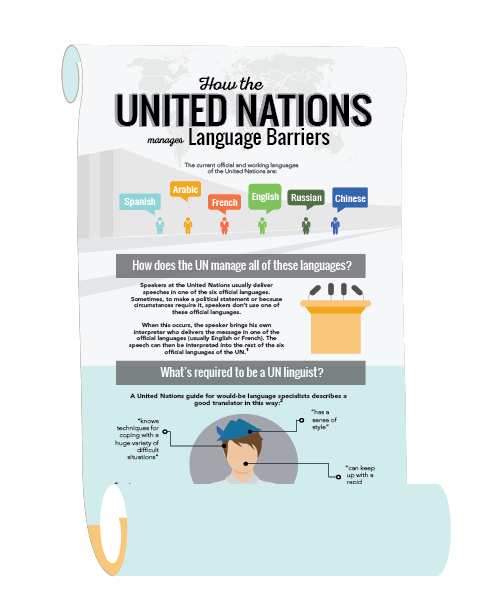Topics:

Stay up to date.
Stay connected with tips, resources & stories on language access.

To recognize United Nations Day, we've highlighted some interesting facts revolving around language, interpretation, translation and the United Nations (UN). Check out the infographic below:
A brief background on United Nations Day:Seventy-one years ago, the United Nations came into existence, and since it's inception, has worked to confront issues of humanity, which include peace and security, human rights, gender equality, governance and more. The purpose of United Nations Day is to educate individuals around the world on the United Nation's goals and achievements, and to gain public support for the UN's work. Today, the United Nations aim is to shed light on the 17 sustainable development goals, which is part of the UN’s 2030 Agenda for Sustainable Development. Click here to view the17 goals, as well as the actions that you can take to help the UN achieve them. |
Click the infographic to enlarge and download.
Infographic Transcript: